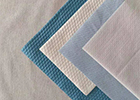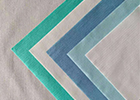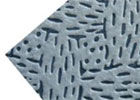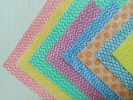Getting Started Guide: Understanding the Advantages and Applications of Nonwoven Polyester Fabric
|
What is Nonwoven Polyester Fabric? Applications of Nonwoven Polyester Fabric Nonwoven Polyester Fabric in Home Furnishings Nonwoven Polyester Fabric in Filtration and Automotive Industries |
What is Nonwoven Polyester Fabric?
Nonwoven polyester fabric is a versatile material that is commonly used in various industries due to its unique properties. Unlike traditional woven fabrics that are created by interlacing yarns, nonwoven polyester fabric is made by bonding or felting fibers together without the need for weaving or knitting. This process results in a fabric that is lightweight, durable, and easy to maintain.
Overview of Nonwoven Polyester Fabric
Nonwoven polyester fabric is made from polyester fibers that are processed using different techniques, such as needle-punching, thermal bonding, or spunlacing. These techniques help to create a fabric that has a uniform structure, making it highly versatile and suitable for numerous applications.
One of the key advantages of nonwoven polyester fabric is its strength and durability. The bonding or felting process creates a fabric that is resistant to tearing and fraying, making it ideal for applications that require robust materials. Additionally, nonwoven polyester fabric is known for its excellent dimensional stability, meaning it maintains its shape and size even under stress or exposure to various environmental conditions.
Another notable characteristic of nonwoven polyester fabric is its ability to provide insulation. This fabric can offer thermal insulation, keeping the desired temperature within a particular space or product. It can also provide acoustic insulation, reducing noise transmission and improving sound quality.
Advantages of Nonwoven Polyester Fabric
Nonwoven polyester fabric offers several advantages that make it a popular choice in various industries:
-
Versatility: Nonwoven polyester fabric can be customized to meet specific requirements. It can be produced in various weights, thicknesses, and textures, allowing it to suit a wide range of applications. Whether it is used in apparel, filtration, geotextiles, or automotive industries, nonwoven polyester fabric can be tailored to meet the desired specifications.
-
Cost-effectiveness: Compared to other fabrics, nonwoven polyester fabric is relatively cost-effective. The manufacturing process is efficient, and the raw materials are readily available, making it an affordable option for businesses.
-
Water and moisture resistance: Nonwoven polyester fabric can be treated to provide water and moisture resistance. This makes it suitable for applications where protection against liquid penetration is crucial, such as in medical gowns, protective covers, or filtration applications.
-
Breathability: Despite its water resistance properties, nonwoven polyester fabric can still provide excellent breathability. It allows air to pass through the fabric, preventing a buildup of heat and moisture. This makes it comfortable to wear in clothing applications and promotes airflow in filtration or insulation applications.
-
Sustainability: Nonwoven polyester fabric is often made from recycled polyester fibers, making it an environmentally friendly choice. Additionally, the production process consumes less energy and water compared to traditional woven fabrics, reducing its carbon footprint.
-
Ease of maintenance: Nonwoven polyester fabric is easy to clean and maintain. It can withstand various cleaning methods, such as washing, dry cleaning, or spot cleaning, without losing its structural integrity or appearance.
Best Examples
Nonwoven polyester fabric is widely used in different industries, and here are some examples of its applications:
-
Apparel: Nonwoven polyester fabric is used in the production of clothing items such as jackets, hats, gloves, and interlinings. It provides insulation, lightweight comfort, and resistance to wear and tear.
-
Filtration: Nonwoven polyester fabric is used in air and liquid filtration systems. Its uniform structure and high surface area allow for efficient particle capture and retention.
-
Geotextiles: Nonwoven polyester fabric is utilized in geotextile applications such as erosion control, soil stabilization, and drainage systems. It provides strength, durability, and permeability to these geotechnical structures.
-
Automotive: Nonwoven polyester fabric is used in automotive applications, including interior trim, seat padding, headliners, and trunk liners. Its durability, insulation, and sound absorption properties make it suitable for various automotive components.
-
Medical and hygiene products: Nonwoven polyester fabric is used in disposable medical gowns, masks, surgical drapes, and diapers. Its water resistance, breathability, and ability to maintain a sterile environment are vital in these applications.
In conclusion, nonwoven polyester fabric is a versatile material that offers numerous advantages in various industries. Its strength, durability, customization options, and sustainability make it an excellent choice for apparel, filtration, geotextiles, automotive, and medical applications. With its unique properties and diverse range of uses, nonwoven polyester fabric continues to be a popular and sought-after material for businesses worldwide.
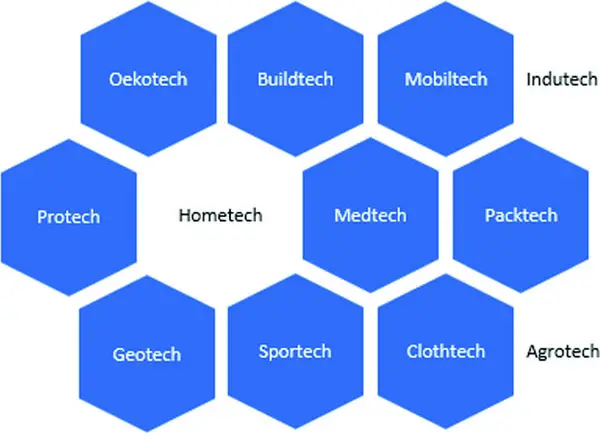
Applications of Nonwoven Polyester Fabric
Nonwoven polyester fabric is a versatile material that finds its applications in various industries due to its unique properties and advantages. Here, we will explore the different applications of nonwoven polyester fabric and its significance in the medical and healthcare industry as well as in industrial settings.
Medical and healthcare industry applications
Nonwoven polyester fabric plays a crucial role in the medical and healthcare industry, where hygiene and safety are of utmost importance. It is extensively used in the production of disposable medical gowns, masks, surgical drapes, and diapers. The water resistance property of nonwoven polyester fabric ensures that these products provide an effective barrier against bodily fluids, protecting both the patient and the healthcare professionals.
In addition to water resistance, nonwoven polyester fabric also offers breathability, allowing air to pass through the material. This is vital in medical applications as it helps in maintaining a sterile environment and prevents the buildup of heat and moisture on the patient's skin.
The durability and ease of maintenance of nonwoven polyester fabric are also significant factors in the medical industry. These fabrics can withstand various cleaning methods without compromising their structural integrity, ensuring that they can be reused safely in critical healthcare settings.
Industrial applications of nonwoven polyester fabric
The industrial sector also benefits from the advantages of nonwoven polyester fabric in a wide range of applications. Here are some notable examples:
-
-
Filtration: Nonwoven polyester fabric is widely used in both air and liquid filtration systems. The uniform structure and high surface area of the fabric allow for efficient particle capture and retention, making it an ideal choice for industries where filtration efficiency is crucial.
-
Geotextiles: Nonwoven polyester fabric finds applications in geotextiles used for erosion control, soil stabilization, and drainage systems. Its strength, durability, and permeability make it suitable for these geotechnical structures.
-
Automotive: Nonwoven polyester fabric is utilized in the automotive industry for various applications such as interior trim, seat padding, headliners, and trunk liners. The fabric's durability, insulation properties, and sound absorption capabilities make it an excellent choice for automotive components.
-
Apparel: Nonwoven polyester fabric is employed in the production of clothing items such as jackets, hats, gloves, and interlinings. It offers lightweight comfort, insulation, and resistance to wear and tear, making it an attractive option for apparel manufacturers.
-
Building and construction: Nonwoven polyester fabric is used in the building and construction industry for applications such as roofing membranes and house wraps. Its water resistance, breathability, and durability make it a suitable material for protecting buildings against external elements.
-
These are just a few examples of the vast range of applications where nonwoven polyester fabric proves to be beneficial. Its versatility, customization options, and cost-effectiveness make it a favored material across different industries.
In conclusion, nonwoven polyester fabric is a versatile material that offers numerous advantages in various industries. Its significance in the medical and healthcare industry lies in its ability to provide water resistance, breathability, and durability in disposable medical products. In industrial applications, nonwoven polyester fabric's properties such as filtration efficiency, strength, and insulation make it an excellent choice. With its unique properties and diverse range of uses, nonwoven polyester fabric continues to be a popular and sought-after material for businesses worldwide.

Nonwoven Polyester Fabric in Home Furnishings
Benefits of nonwoven polyester fabric in home furnishings
Nonwoven polyester fabric offers several advantages in the realm of home furnishings. Its unique properties and versatility make it a popular choice for various applications in this industry. Here are some key benefits of using nonwoven polyester fabric in home furnishings:
-
-
Durability: Nonwoven polyester fabric is known for its excellent durability. Unlike traditional woven fabrics, nonwoven polyester fabric is made by bonding fibers together rather than weaving them into a pattern. This results in a fabric that is resistant to tear, wear, and pilling, making it ideal for furniture upholstery and other high-traffic areas in the home.
-
Easy maintenance: Nonwoven polyester fabric is relatively easy to clean and maintain. It can withstand frequent washing and is resistant to stains and fading. This makes it a practical choice for home furnishings that are exposed to everyday wear and tear, such as sofas, chairs, and curtains.
-
Water resistance: Nonwoven polyester fabric is inherently water-resistant, thanks to its unique structure. This property makes it suitable for use in areas prone to moisture, such as bathrooms or kitchens. It can be used for shower curtains or as a protective layer for upholstery in these areas, providing both functionality and aesthetic appeal.
-
Colorfastness: Nonwoven polyester fabric retains its color well over time, even with repeated exposure to sunlight and washing. This ensures that home furnishings made with this fabric will maintain their vibrant appearance for an extended period. This is especially important in applications such as curtains, where maintaining the color and pattern integrity is crucial for the overall aesthetics of a room.
-
Common uses in home furnishing applications
Nonwoven polyester fabric finds numerous applications in the realm of home furnishings. Its versatility and ability to meet various functional and aesthetic requirements make it a go-to choice for designers and homeowners alike. Here are some common uses of nonwoven polyester fabric in home furnishings:
-
-
Upholstery: Nonwoven polyester fabric is widely used for upholstery purposes. Its durability and resistance to wear and tear make it suitable for covering furniture pieces such as sofas, chairs, and ottomans. It is available in a wide range of colors, patterns, and textures, allowing for creative expression and customization.
-
Window treatments: Nonwoven polyester fabric is commonly used for curtains, drapes, and blinds. Its water resistance and colorfastness make it an excellent choice for window treatments, ensuring longevity and maintaining a polished look. The versatility of nonwoven polyester fabric allows for a variety of styles, from sheers to blackout curtains, to suit different needs and preferences.
-
Bedding and linens: Nonwoven polyester fabric is also utilized in the production of bedding and linens. Its softness, durability, and resistance to wrinkles make it an ideal choice for items such as bed sheets, pillowcases, and duvet covers. Nonwoven polyester fabric provides comfort and ease of maintenance, ensuring a restful night's sleep.
-
Decorative accessories: Nonwoven polyester fabric can be incorporated into various decorative accessories in the home, such as throw pillows, table runners, and wall hangings. Its versatility allows for the creation of unique and visually appealing accents that can enhance the overall aesthetic of a space.
-
In conclusion, nonwoven polyester fabric offers numerous advantages and applications in the realm of home furnishings. Its durability, easy maintenance, water resistance, and colorfastness make it a practical choice for upholstery, window treatments, bedding, and decorative accessories. By utilizing nonwoven polyester fabric, homeowners and designers can create functional and aesthetically pleasing spaces that withstand the test of time.
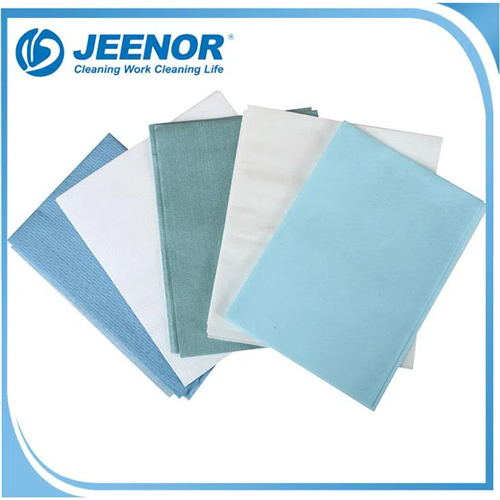
Nonwoven Polyester Fabric in Filtration and Automotive Industries
Role of Nonwoven Polyester Fabric in Filtration
Nonwoven polyester fabric plays a crucial role in a wide range of filtration applications. Its unique properties make it an excellent choice for various filtration processes, including air, liquid, and gas filtration. Here are some key advantages of using nonwoven polyester fabric in filtration:
-
-
High Efficiency: Nonwoven polyester fabric offers exceptional particle retention, making it highly efficient in removing contaminants. Its fine fibers create a dense structure that can capture even the smallest particles, ensuring clean and pure filtrate.
-
Durability: Nonwoven polyester fabric is known for its durability and resistance to wear and tear. It can withstand high-pressure conditions and aggressive chemicals without losing its filtration efficiency. This ensures a longer lifespan and lower maintenance costs compared to other filtration materials.
-
Versatility: Nonwoven polyester fabric can be customized to meet specific filtration requirements. It can be engineered to have different levels of porosity, thickness, and pore size, allowing for precise control over filtration efficiency and flow rates. This versatility makes it suitable for a wide range of industries, including pharmaceuticals, food and beverage, electronics, and automotive.
-
Easy Maintenance: Nonwoven polyester fabric is relatively easy to clean and maintain. It can be easily cleaned by backwashing or rinsing, and it does not require frequent replacement like some other filtration materials. This translates to cost savings and reduced downtime in filtration systems.
-
Applications in the Automotive Industry
Nonwoven polyester fabric also finds numerous applications in the automotive industry. Its exceptional qualities make it a go-to choice for various automotive components and systems. Here are some key applications of nonwoven polyester fabric in the automotive industry:
-
-
Engine Filtration: Nonwoven polyester fabric is commonly used in engine air filters and oil filters. Its high filtration efficiency helps prevent dust, dirt, and other contaminants from entering the engine, ensuring optimal performance and longevity.
-
Cabin Air Filtration: Nonwoven polyester fabric is also used in cabin air filters, which are designed to remove pollutants and allergens from the air inside a vehicle's cabin. Its fine fibers can trap and retain particles such as pollen, dust, and exhaust fumes, providing clean and fresh air for the occupants.
-
Acoustic Insulation: Nonwoven polyester fabric is often utilized as a component in automotive acoustic insulation systems. Its sound-absorbing properties help reduce noise and vibrations, creating a quieter and more comfortable driving experience.
-
Interior Components: Nonwoven polyester fabric is used in the production of various interior components, such as seat cushions, headliners, door panels, and trunk liners. Its durability, softness, and ease of customization make it an ideal choice for these applications.
-
Car Covers: Nonwoven polyester fabric is a popular material for car covers due to its excellent weather resistance and breathability. It provides protection against UV radiation, dust, rain, and scratches, helping to preserve the exterior of a vehicle.
-
In conclusion, nonwoven polyester fabric offers numerous advantages and applications in the filtration and automotive industries. Its high filtration efficiency, durability, versatility, and ease of maintenance make it a preferred choice for filtration processes in various industries. In the automotive industry, nonwoven polyester fabric is used in engine and cabin air filtration, acoustic insulation, interior components, and car covers, among other applications. By utilizing nonwoven polyester fabric, manufacturers can ensure better filtration performance and enhanced functionality in their products, leading to improved efficiency and customer satisfaction.
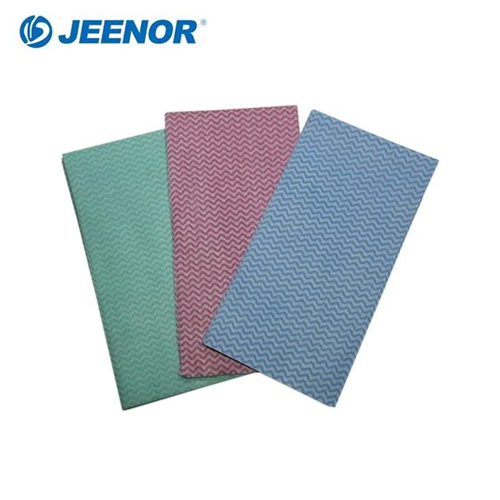
Conclusion
In conclusion, nonwoven polyester fabric offers numerous advantages and applications in both the filtration and automotive industries. Its unique properties make it highly efficient in removing contaminants in various filtration processes, including air, liquid, and gas filtration. The fabric's high efficiency, durability, versatility, and ease of maintenance make it a preferred choice for filtration processes in pharmaceuticals, food and beverage, electronics, and automotive industries.
In the automotive industry, nonwoven polyester fabric finds numerous applications, including engine filtration, cabin air filtration, acoustic insulation, interior components, and car covers. Its high filtration efficiency helps protect the engine from dust and dirt, ensuring optimal performance and longevity. In cabin air filters, the fabric's fine fibers trap and retain particles such as pollen, dust, and exhaust fumes, providing clean and fresh air for the vehicle occupants. Nonwoven polyester fabric is also used in automotive acoustic insulation systems, reducing noise and vibrations for a quieter and more comfortable driving experience. Additionally, the fabric's durability, softness, and ease of customization make it ideal for various interior components, such as seat cushions, headliners, door panels, and trunk liners. It is also a popular material for car covers due to its weather resistance and breathability, protecting the vehicle from UV radiation, dust, rain, and scratches.
By utilizing nonwoven polyester fabric, manufacturers can ensure better filtration performance and enhanced functionality in their products, leading to improved efficiency and customer satisfaction. The fabric's high efficiency, durability, versatility, and ease of maintenance make it a reliable choice for filtration processes in various industries. In the automotive industry, its exceptional qualities contribute to the performance, comfort, and protection of vehicles.
Summary of the Advantages and Applications of Nonwoven Polyester Fabric
• High Efficiency: Nonwoven polyester fabric offers exceptional particle retention and fine fiber density, ensuring clean and pure filtration in various processes.
• Durability: The fabric is resistant to wear and tear, withstands high-pressure conditions and aggressive chemicals, and has a longer lifespan compared to other filtration materials.
• Versatility: Nonwoven polyester fabric can be customized to meet specific filtration requirements through control over porosity, thickness, and pore size.
• Easy Maintenance: The fabric is relatively easy to clean and does not require frequent replacement, leading to cost savings and reduced downtime in filtration systems.
Applications in the automotive industry include engine filtration, cabin air filtration, acoustic insulation, interior components, and car covers. These applications contribute to the performance, comfort, and protection of vehicles.
Further Resources for Understanding Nonwoven Polyester Fabric
To further understand nonwoven polyester fabric and its advantages and applications, the following resources can provide valuable information:
• Trade publications related to the filtration and automotive industries often feature articles and case studies on the use of nonwoven polyester fabric.
• Industry conferences and exhibitions offer opportunities to learn about the latest developments and innovations in nonwoven polyester fabric technology.
• Consultation with experts in the field, such as engineers and technicians specializing in filtration or automotive components, can provide valuable insights and guidance.
• Research papers and studies published in scientific journals provide in-depth analysis and technical information on the properties and applications of nonwoven polyester fabric.
• Manufacturers and suppliers of nonwoven polyester fabric often provide detailed product specifications and application guidelines on their websites.
By exploring these resources, entrepreneurs, marketers, and industry professionals can deepen their understanding of nonwoven polyester fabric and make informed decisions about its use in their businesses or projects.




